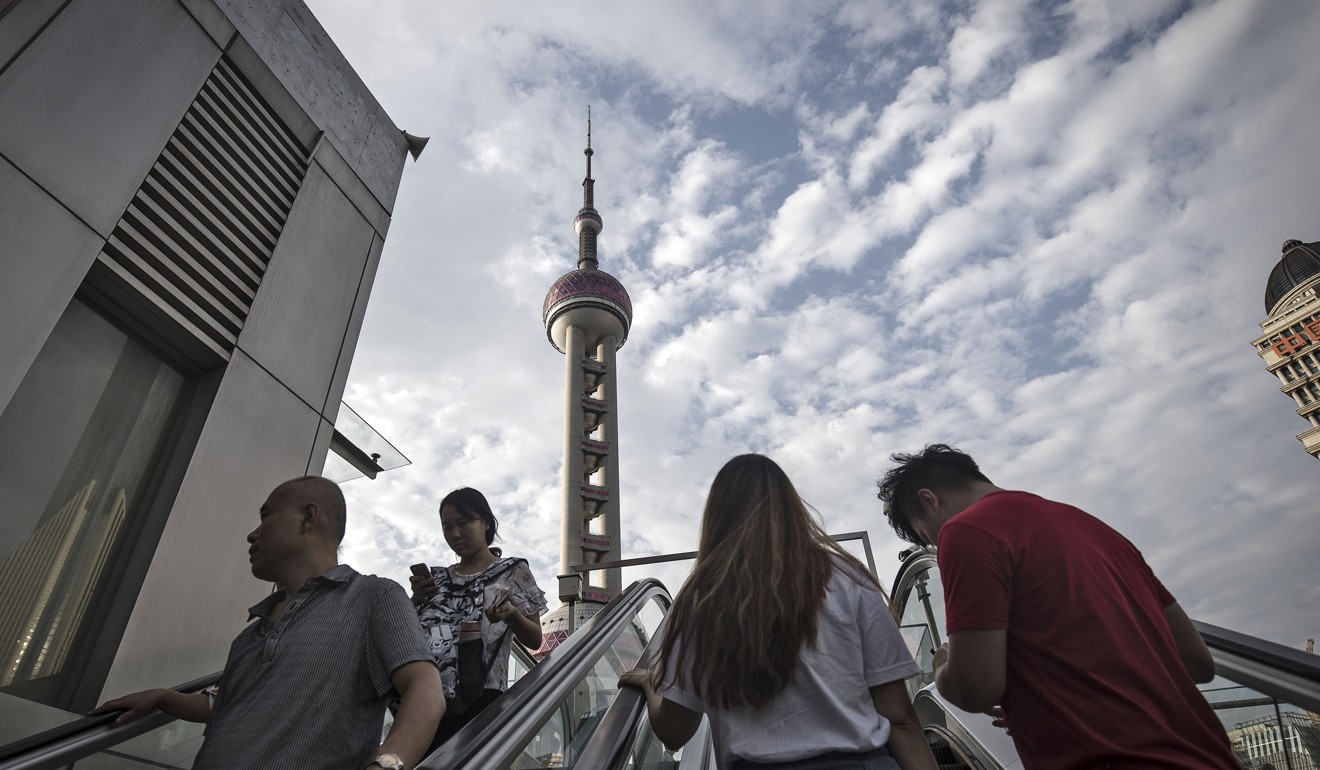Mainland-born Hongkongers may be tempted home by policy shift (but not everyone is convinced)
Some see it as a good move after getting permanent residency, but others will stick with Hong Kong for now, despite plan to give them the same privileges as locals

A proposal that would give Hongkongers working on the mainland the same privileges as locals is likely to encourage mainland workers living in the city to return to their homeland once they qualify as permanent residents.
And that could put further pressure on the city’s efforts to retain good workers, as mainland migrants have been a key labour source.
Winnie Sun, a Nanjing native who came to Hong Kong seven years ago as a student, said the policy would help her when she moved to Shenzhen one day.
“Hong Kong has never been a very attractive place to live and work for me,” the business graduate said, citing the living costs, fast-paced lifestyle and limited job prospects.
But this had not affected her desire to become a permanent resident, she said, as Hong Kong identity comes with many privileges, such as visa-free travel to 158 countries and regions. That number is 26 for Chinese passport holders.
Chinese citizens can become Hong Kong permanent residents after staying in the city for seven years – but only if they give up their mainland identity, as China does not allow dual citizenship.
“I was thinking if I should do that. But if the policy could be implemented soon, it would be attractive for me,” Sun said.
Sun was among the roughly 150,000 mainlanders who came to Hong Kong through the government’s two migrant admission schemes, the longer of which has been running for just over a decade. About 10,000 got Hong Kong permanent residency between 2009 and 2015.
Most leave the city after a few years. About 80 per cent of those accepted under the Admission Scheme for Mainland Talents and Professionals stayed for less than five years, according to an Audit Commission report in 2016.
The Hong Kong government, however, is keen to retain such foreign workers to complement the local workforce.
These new migrants from the mainland are usually highly educated and paid above the market average. Their top three employment areas are academic research and education, arts and culture, and financial services, according to the audit report.
When they leave Hong Kong for new destinations, major mainland cities like Beijing and Shanghai are popular choices.

Hebe Cheng Yandi from Qingdao moved to Beijing last year after studying and working in Hong Kong for eight years and gaining permanent residency. She said she was surprised at the number of old friends she found in the capital.
She said there was a WeChat group of more than 100 former students about her age from Chinese University who were now in Beijing. The university admits about 300 mainland students to its undergraduate programmes every year.
“I am not lonely,” Cheng said, saying people from the group regularly get together at weekends. Hong Kong, on the other hand, had become a lonely place after most of her close friends left, she said.
Cheng said she returned for better career opportunities. She broadly welcomed the new proposal.
“The policy is definitely a good thing for us, but it won’t play a decisive role for me to decide where to stay,” she said.
For some mainland-born Hongkongers, a more welcoming policy does not make working on the north of the border more appealing. John Li, an economics graduate, left Hong Kong a year ago to embrace the booming aviation industry on the mainland. Though he still works there, he already misses his adopted city, where he lived for seven years after moving from his native Hunan.
The 27-year-old said he could make the most of his knowledge in a free and fair society like Hong Kong’s, something the mainland could not match despite its higher growth potential.
“I think social justice and freedom are more important than policy sweeteners,” he said.
Working at the mergers and acquisitions unit for a leading aviation company, Li said many overseas deals had been delayed recently because of tightening controls on capital outflows. Some decisions were made against the economic principles he learned at school, as “political factors” weighed heavily on his work, Li said.
Jeff Chu, another Hong Kong permanent resident born on the mainland, said the new incentive was not attractive enough for him to make the move. As a human resources consultant, he said he valued the lower tax, higher salary, better public transport and freedom of expression that Hong Kong offers.
“Hong Kong is a good place for workplace newbies to learn and grow,” he said, praising the city’s mature market system and international exposure.
Chu, who recently got engaged, said it was easier for him to start a stable and relatively affluent life in the city than across the border, as the cost of living is becoming equally expensive in big Chinese cities while pay has not improved much for junior employees.
However, he added: “If I want to seek a breakthrough later in my career, I might consider moving to the mainland.”